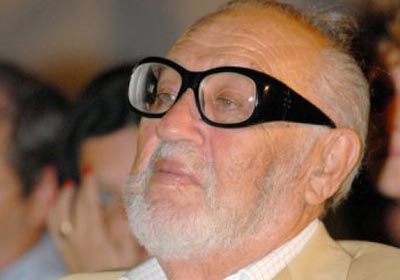
Twenty families own most of the “free” economy in Israel: a recent report points to disturbing trends concerning class and society. Dr. Gotlieb sees fault in the free market policies that injure people and the environment.
In his comments on Israel’s invitation join to the Organization of Economic Cooperation and Development (OECD) last May, Prime Minister Benyamin Netanyahu stated: “The more we continue to free up Israel’s economy, and the more we continue to remove barriers to competition, the more Israel’s economy will thrive and the more the people of Israel will prosper.…”
A government report published on Sunday suggests differently: Statistics from the report by Israel’s Central Bureau of Statistics (CBS), indicate that large swaths of Israel’s population have been left behind by the Likud’s liberal economic program (Likud is the major center-right political party in Israel). Class division has increased, the number of people living under the poverty level is rising and Israel’s compares most unfavorably to European standards of socioeconomic welfare.
Elderly and children at risk
According to the CBS report, 29 percent of the Israeli population is in danger of falling under the poverty line compared to 17 percent in the European Union. In Israel, 38 percent of children and 33 percent of the elderly are at risk of impoverishment compared to 19 and 20 percent of Europeans in these categories. Poverty according to the standard used in the EU is found in households which have less than sixty percent of the median disposable per capita income characteristic of the society.
The report indicates that in 2008 the average net income of the wealthiest twenty percent of Israel’s population was 7.5 times more than the average for the lowest twenty percent; in 2000 the differential between these classes was 6.5. In Europe the differences between the richest and poorest quintiles of the population was 4.5 in 2000 and 4.9 in 2008. In other words, in Israel the gap between the classes is widening and is doing so at a faster rate relative to Europe. In these terms, Israel’s situation has worsened as a result of the free market reforms relative to other OECD members.
In his remark’s on Israel’s acceptance to the OECD, Prime Minister Netanyahu stated that “[o]ur goal is to become within the next decade one of the 15 highest per capita income countries in the world.”
In the liberal economics worldview, nations should aspire to increased per capita income as reflected by increases in the national product. However, these measures do not show how growth is distributed within the society; they reveal little about a society’s internal socioeconomic development. While Israel has had robust economic growth over the past two decades, yesterday’s CBS report shows that it is the “elephants” of the society that have benefitted and not the “sparrows.”
They own banks, malls, infrastructure, real estate…
Israel’s economy has been characterized by an extraordinarily high concentration of power and ownership in its most elite classes – a profile developed over the last thirty years during which market economics has guided government policy. The Netanyahu government has been compelled to acknowledge the intense concentration of economic control and has appointed a committee to investigate how to counter it.
This concentration of the country’s economy in the hands of the Twenty Families, the private empires where finance (banks, insurance), real estate (housing, shopping malls), infrastructure (construction , minerals, transport) and retail (supermarkets, food, clothing ) has a distortive effect on the economy.
Daniel Doron, head of the pro-market Israel Center for Social and Economic Progress writing in yesterday’s The Jerusalem Post (Perverting Public Discourse) describes the system by saying that it is “causing every family to pay a monopoly tax of between 20 percent and 30% on everything it consumes… This is particularly hard on lower-income families.…”
Elites fighting tooth and nail
In his article Doron discusses the extent to which these plutocrats are fighting reforms by investing heavily in public relations and lobbying campaigns.
Such attempts were brought clearly into focus by the appearance of Yitzhak Tshuva and his coterie of lobbyists before the Knesset in early October to fight efforts aimed at increasing the paltry royalty rates the State of Israel receives from the exploitation of fossil fuels in its territory. Current rates are among the lowest in the world (see Israel’s Oil Tycoons Seek Higher Ground) and Tshuva –whose Delek Group is in partnership with Noble Energy, a US multinational corporation are attempting to exploit new and promising gas finds off of Israel’s coast — is fighting reform tooth and nail.
They insist on their right to amass billions while remitting as little as possible to the state’s coffers.
Minerals give-away
Aside from oil and gas, concerns investing in other minerals resources have been abundantly blessed by the government’s free market orientation. In a recent article published in Haaretz entitled “Sea of Corruption” (Oct. 7, 2010, p. 5) Merav Michaeli discusses how Israel Chemicals (with revenues in 2009 of NIS 17 billion (about $5 billion USD) and net profits of NIS 2.92 billion in that year) was sold by the government to the Eisenberg family in 1995.
The Eisenbergs then sold the corporation to the Ofer family. According to Michaeli the Ofers have reaped profits from Israel Chemicals of NIS 3 billion since 2003. While the royalties of 12.5 percent paid to the state from petroleum resources are a pittance, the 5 percent paid for mineral resources are even more absurd.
As Israel Chemical’s website boasts “with exclusive concessions to extract high quality, low cost minerals from Israel’s Dead Sea and rights to mine the Negev Desert, ICL [Israel Chemicals] is a…a major player in specialty chemical high margin niche markets.”
This is truly an advantageous position for economic mega-players: a government near give-away that enables whopping capital accumulation to one of the country’s wealthiest elites. It is important to note that the subsidence and other environmental damages incurred to the Dead Sea area are partially a result of mineral extraction by Israel Chemicals.
Thirty years of the Likud’s liberal economic program has normalized such aberrations perhaps most notably in the free reign given to land developers. The result is the exploitation of Israel’s natural resources by the economic elites with little regard for environmental impact or social justice.
In an age when profiteering and economic growth are sacrosanct, there is little wonder that Israel’s educational achievement and social welfare is in decline.
Free market ideology as state creed
In the three decades since Menachem Begin and the Likud began its war on Israel’s social democratic foundations, free market ideology has been elevated to state creed.
Powerful economic interests dominate Israel’s – and by extension, the West Bank’s – economy with profound environmental, political and cultural implications. The policies that led to Israel’s ascent to OECD membership, so coveted by the Netanyahu government have caused our society great damage. The ominous message contained in the CBS report bodes poorly for Israel’s future under this regime.
Read more about the ungreen economy of Israel:
Israel Polluters Face New OECD rules
Will Israel’s Undersea Gas Pipeline Idea Increase the Mediterranean’s Already Polluted State?
One State. One Environment
Intel Israel Is LEED’s Golden Child
Above image of Sami Ofer via Israel Sun



The content of this article is good and valid but blaming the “Likud’s liberal economic programs” is shallow. Sharp economic divisions existed during the Likud’s long sojourn in opposition. Liberal economic policy may be a catalyst but not a cause. Inequity is a severe social problem that merits more than the chanting of obsolete slogans.